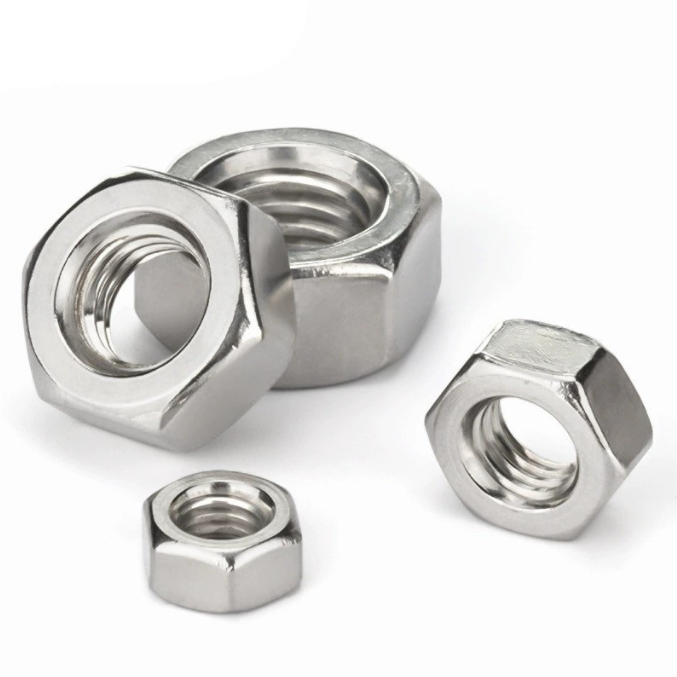

Exploring Various Categories of Fasteners for Construction and DIY Projects
Nov . 09, 2024 15:46 Back to list
Exploring Various Categories of Fasteners for Construction and DIY Projects
Different Types of Fasteners A Comprehensive Guide
Fasteners are essential components in construction, manufacturing, and countless applications. They play a vital role in joining materials together, ensuring structural integrity, and facilitating the assembly of products. In this article, we will explore the various types of fasteners, their uses, and how to choose the right one for your project.
1. Screws
Screws are one of the most common types of fasteners, designed to hold two or more objects together by threading into them. They come in various sizes, lengths, and materials, making them versatile for many applications. Some popular types of screws include
- Wood Screws Designed specifically for wood, these screws have sharp threads that create a tight grip. - Machine Screws Typically used with a nut or a tapped hole, machine screws are often found in metal-to-metal connections. - Sheet Metal Screws These screws are designed to fasten metal sheets together and have a unique thread to grip well in metal substrates.
Choosing the right screw involves considering the material you are working with, the required strength, and whether you need it to be removable or permanent.
2. Bolts
Bolts are similar to screws but are primarily used in conjunction with nuts. They feature a uniform diameter and are usually thicker than screws. The main components of a bolt include the head, shaft, and threads. There are several types of bolts
- Hex Bolts These have a hexagonal head and are commonly used in construction and heavy machinery. - Carriage Bolts With a rounded head and a square neck, carriage bolts are ideal for fastening wood to metal. - Lag Bolts Also known as lag screws, these are used when a strong holding power is necessary, typically in wood applications.
Bolts offer strong holding power and are often used in situations where high tensile strength is required.
3. Nuts
Nuts are hexagonal blocks with a hole in the center designed to accommodate bolts. They come in various types and materials and are essential for creating secure connections. Common types of nuts include
different types of fasteners

- Hex Nuts The most commonly used type, hex nuts are versatile and suitable for various applications. - Lock Nuts These have a built-in locking mechanism to prevent loosening from vibration or movement. - Wing Nuts With two wings for easy manual tightening, wing nuts are used in applications where quick adjustments are necessary.
Selecting the right nut depends on its compatibility with bolts, the environment in which it will be used, and the need for locking features.
4. Washers
Washers are flat disks used to distribute the load of a fastener and prevent damage to the material being fastened. They can also serve to reduce friction and wear. There are two main types of washers
- Flat Washers These provide a larger surface area under a bolt or nut to distribute the load. - Lock Washers Designed to prevent loosening, lock washers come in various shapes (e.g., split or tooth) and are critical in applications where vibrations are present.
Choosing the right washer can help enhance the performance and longevity of fastened connections.
5. Anchors
Anchors are used to secure fasteners into materials that cannot support a traditional screw or bolt. They are often used in concrete, bricks, or masonry. Some common types of anchors include
- Expansion Anchors These expand when a bolt is inserted, creating a secure hold within the substrate. - Concrete Screws Featuring special threads, these screws cut into concrete for a strong grip without the need for an anchor. - Masonry Anchors Specifically designed for use in brick or block, masonry anchors provide extra holding power.
Anchors are critical for applications that require fastening to hard surfaces.
Conclusion
Choosing the right fastener is crucial for the success of any project. Understanding the different types—screws, bolts, nuts, washers, and anchors—will help you make informed decisions based on your material, application, and desired strength. With the right fasteners, you can ensure safety, durability, and performance in your construction or assembly tasks. Whether you're a seasoned professional or a DIY enthusiast, knowing how to select and use the appropriate fasteners can greatly enhance the quality of your work.
Latest news
-
High-Strength Hot-Dip Galvanized Bolts-Hebei Longze|Corrosion Resistance&High Strength
NewsJul.30,2025
-
Hot Dip Galvanized Bolts-Hebei Longze|Corrosion Resistance&High Strength
NewsJul.30,2025
-
Hot Dip Galvanized Bolts - Hebei Longze | Corrosion Resistance, High Strength
NewsJul.30,2025
-
High-Strength Hot Dip Galvanized Bolts-Hebei Longze|Corrosion Resistance, Grade 8.8
NewsJul.30,2025
-
Hot Dip Galvanized Bolts-Hebei Longze|Corrosion Resistance,High Strength
NewsJul.29,2025
-
High-Strength Hot Dip Galvanized Bolts - Hebei Longze Metal Products Manufacturing Co., Ltd.|corrosion resistance&high strength
NewsJul.29,2025

